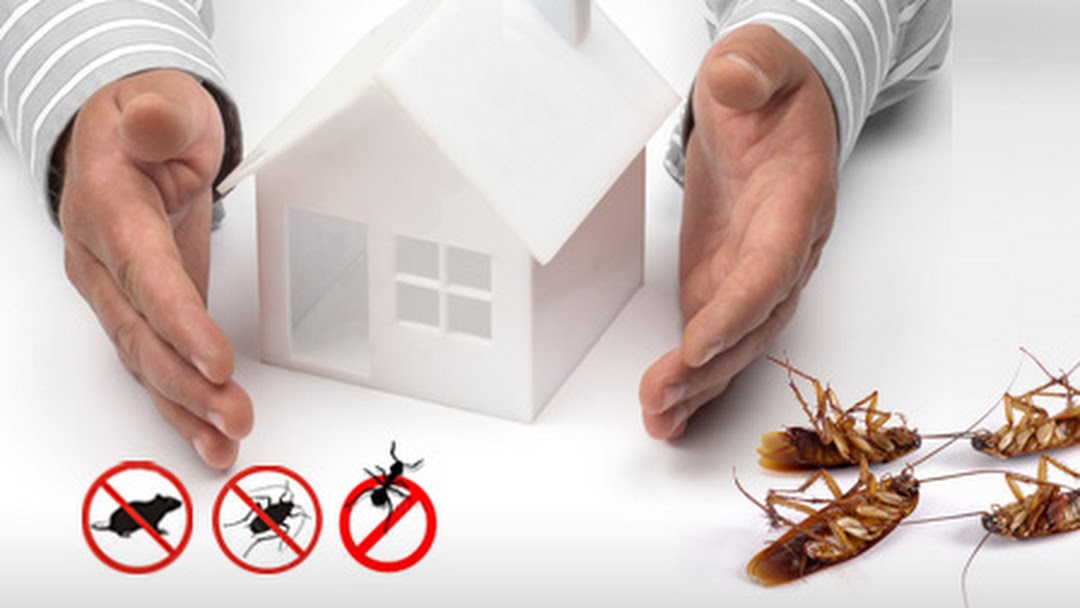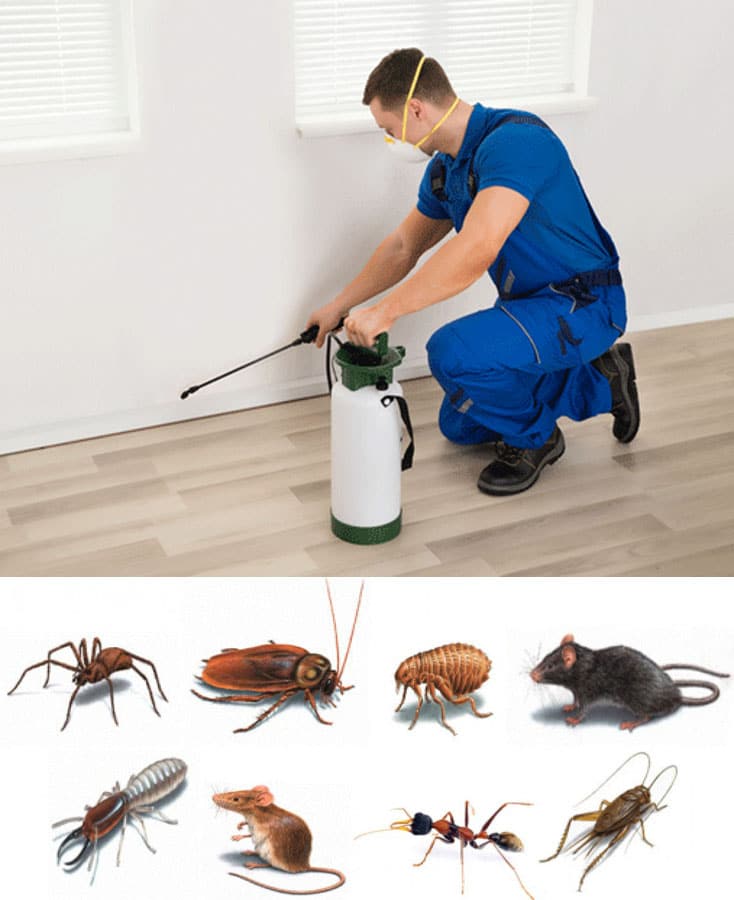Professional Wasp Control Coquitlam: Safe and Efficient Pest Removal
Professional Wasp Control Coquitlam: Safe and Efficient Pest Removal
Blog Article
Safe and Trustworthy Bug Control for Lasting Security
Effective pest administration calls for a multifaceted technique that balances environmental honesty with the need for effective parasite suppression. The nuances of these techniques might not be right away clear, motivating a closer assessment of the practices that can lead to sustainable insect control outcomes.
Comprehending Parasite Control Techniques
Pest control encompasses a range of techniques intended at handling and eradicating undesirable insects and rats that can intimidate both health and building. Comprehending these methods is essential for efficient insect monitoring.
The key categories of pest control methods include mechanical, organic, and chemical methods. Mechanical techniques include physical barriers and traps to avoid bug access and capture undesirable varieties. Using displays on home windows or utilizing sticky traps can substantially minimize insect populations without presenting unsafe materials - exterminator coquitlam.

Chemical bug control is commonly the most identified method, making use of pesticides to get rid of bugs. These chemicals can be effective but need to be used with care to avoid adverse effects on non-target varieties and the atmosphere.
Advantages of Eco-Friendly Solutions
Exactly how can environmentally friendly options transform bug control practices? The adoption of green insect control approaches uses many benefits, dramatically enhancing the efficiency and safety and security of pest monitoring (exterminator coquitlam). These services use natural ingredients, minimizing the dependence on unsafe chemicals that can pose risks to human health and wellness and the atmosphere. This change not only protects households and animals yet also decreases the possibility for soil and water contamination.

Another benefit is the positive impact on neighborhood biodiversity. Green options are developed to target details bugs while preserving helpful insects and wildlife, promoting a well balanced community. This technique lines up with the expanding consumer need for sustainable techniques, enhancing the credibility of pest control service providers.
Integrated Parasite Administration Approaches
The application of environmentally friendly services naturally leads to the adoption of Integrated Parasite Management (IPM) methods, which further improve insect control effectiveness. IPM is a holistic method that incorporates multiple techniques to take care of bug populations while minimizing ecological impact. This technique highlights using organic, cultural, mechanical, and chemical controls, making sure a well balanced and sustainable technique of parasite management.
One essential facet of IPM is the extensive evaluation of parasite task and environmental conditions. By checking pest populations and determining their life process, experts can apply targeted treatments that interrupt the pest's habitat or lifecycle, decreasing reliance on chemical pesticides. Furthermore, cultural practices such as crop turning and environment adjustment can dramatically diminish pest facility and Recommended Site recreation.
An additional vital element is the usage of organic control agents, such as useful bugs or bacteria, which can normally subdue parasite populaces. When chemical applications are needed, IPM prioritizes using low-risk pesticides and uses them selectively, minimizing direct exposure to non-target organisms and humans.
Incorporating IPM strategies not just boosts bug control efficiency however also advertises a more secure ecological community, lining up with the growing demand for lasting methods in insect management.
Safe Practices for Home Owners
Recognizing the significance of secure methods in pest control can equip home owners to properly handle bug issues while safeguarding their wellness and the environment. Applying safe methods and safety nets is essential in decreasing exposure to damaging chemicals.
Home owners ought to initially analyze their atmosphere for problems that attract insects, such as standing food, clutter, and water waste. Consistently cleaning and sealing entrance factors can hinder pests from getting into the home. Utilizing all-natural deterrents, such as essential oils or diatomaceous earth, can offer efficient choices to chemical pesticides.
When chemical treatments are necessary, house owners ought to decide for items that are specifically labeled as risk-free for property usage. It is vital to follow application guidelines carefully to prevent too much exposure. Moreover, making use of targeted therapies in locations where insects are determined, instead of blanket spraying, can substantially minimize chemical use.
Finally, maintaining open communication with pest control experts is crucial. House owners should ask about the safety and security of items utilized and request environment-friendly alternatives whenever possible. By embracing these risk-free practices, home owners can develop a healthier living environment while properly taking care of bug problems.

Tips for Long-Term Security
Developing a bug management strategy that stresses long-term defense can substantially improve the effectiveness of the secure practices formerly talked about. To achieve this, home owners ought to apply normal evaluations of their residential property, focusing on concealed areas such as attic rooms, basements, and crawl areas. Early detection of bug activity is crucial in protecting against infestations from holding.
These methods decrease attractants that attract bugs right into the home. Securing entry points, such as cracks around doors and windows, can efficiently obstruct potential bug access.
Landscaping needs to also be thought about; keeping plants trimmed and preserving a distance between greenery and the home reduces concealing spots for pests. Utilizing natural deterrents, such as important oils or diatomaceous earth, can further dissuade invasions without turning to severe chemicals.
Finally, working together with an expert parasite control service for periodic evaluations can offer an additional layer of safety. These professionals can provide tailored referrals and progressed treatments, guaranteeing that your home remains protected against Your Domain Name parasites in the long-term.
Conclusion
Finally, trusted and secure insect control needs a diverse strategy that emphasizes environmentally friendly approaches and integrated pest monitoring. By carrying out natural deterrents, performing routine inspections, and maintaining appropriate sanitation, homeowner can considerably lower insect populations while protecting beneficial reference bugs and the environment. Partnership with professional bug control services improves the performance of these strategies, ensuring tailored remedies that supply lasting security and comfort against future invasions.
Reliable insect monitoring requires a diverse strategy that balances environmental honesty with the need for reliable pest suppression. The fostering of environment-friendly parasite control methods provides countless advantages, significantly improving the performance and safety of insect administration.The execution of eco-friendly services naturally leads to the adoption of Integrated Pest Administration (IPM) strategies, which even more improve bug control efficiency. exterminator coquitlam. By keeping track of bug populations and recognizing their life cycles, experts can implement targeted interventions that disrupt the pest's habitat or lifecycle, decreasing reliance on chemical pesticides.In final thought, dependable and risk-free insect control needs a diverse method that emphasizes eco-friendly approaches and integrated bug monitoring
Report this page